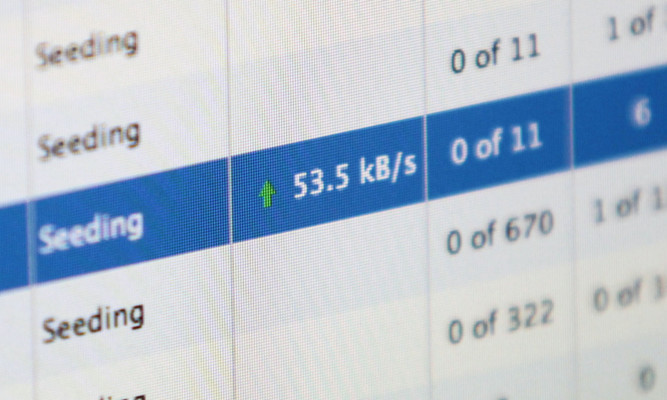Major record companies won High Court orders today in their battle against “industrial scale” copyright infringement.
EMI Records, Polydor, Sony Music Entertainment UK, Simco, Virgin Records and others were granted “blocking” orders by a judge in London against the six main retail internet service providers (ISPs) in the UK.
The 10 companies, who also claimed on behalf of other members of the British Recorded Music Industry (BPI) and Phonographic Performance Ltd (PPL), went to court for an injunction requiring the service providers to take measures to “block or at least impede” access by their customers to three file-sharing websites.
Announcing his decision today, Mr Justice Arnold said the operators of the three “peer-to-peer” websites were “profiting from infringement on an industrial scale”.
He pointed out that the ISPs – British Sky Broadcasting Limited, British Telecommunications PLC, Everything Everywhere Limited, TalkTalk Telecom Group PLC, Telefonica UK Limited and Virgin Media Limited – had not opposed the making of orders, provided that the court was “satisfied that it has jurisdiction to make such orders and it is appropriate to do so”.
The record companies were also supported in their case relating to the KAT, H33T and Fenopy websites by a number of organisations representing other groups of rights-holders in the music, film, book publishing and video games industries, including the Motion Picture Association.
Mr Justice Arnold announced he was satisfied the orders sought by the companies “are proportionate”, adding: “The orders are necessary and appropriate to protect the intellectual property rights of the claimants and other copyright owners.”
Those interests “clearly” outweighed the rights of users of the websites “who can obtain the copyright works from many lawful sources”.
Explaining the case he said the three websites “operate as BitTorrent indexing websites, providing an organised directory of content which users can browse and from which they can select the sound recordings, or other content, of their choice.
“Having selected the content, users download the relevant torrent file for that content from the websites.”
Each of the websites “operates as a substantial profit-making business”.
The judge said: “In relation to all three of the websites, the enabling of mass online copyright infringement is the cornerstone of their business model.
“The entire purpose of each of the websites is to attract users to them by providing those users with the free means of copying and making available content which people are interested in and would otherwise pay money for.”
Each of the websites “has taken measures in order to frustrate international investigations, to conceal the identities of their operators and to evade copyright enforcement actions”.
He said: “Each of the websites purports to maintain a content removal policy which claims to provide for the removal of copyrighted content from the website upon receipt of a relevant notification.
“The reality appears to be that these policies are mere window-dressing, and that the operators of the websites do not take any meaningful steps to prevent the widespread infringements of copyright which takes place.”
The judge said he was satisfied that both users and operators of the websites use the services of the ISPs “to infringe the claimants’ copyrights”.
The cost of implementation of the orders to the ISPs “will be modest and proportionate”.
